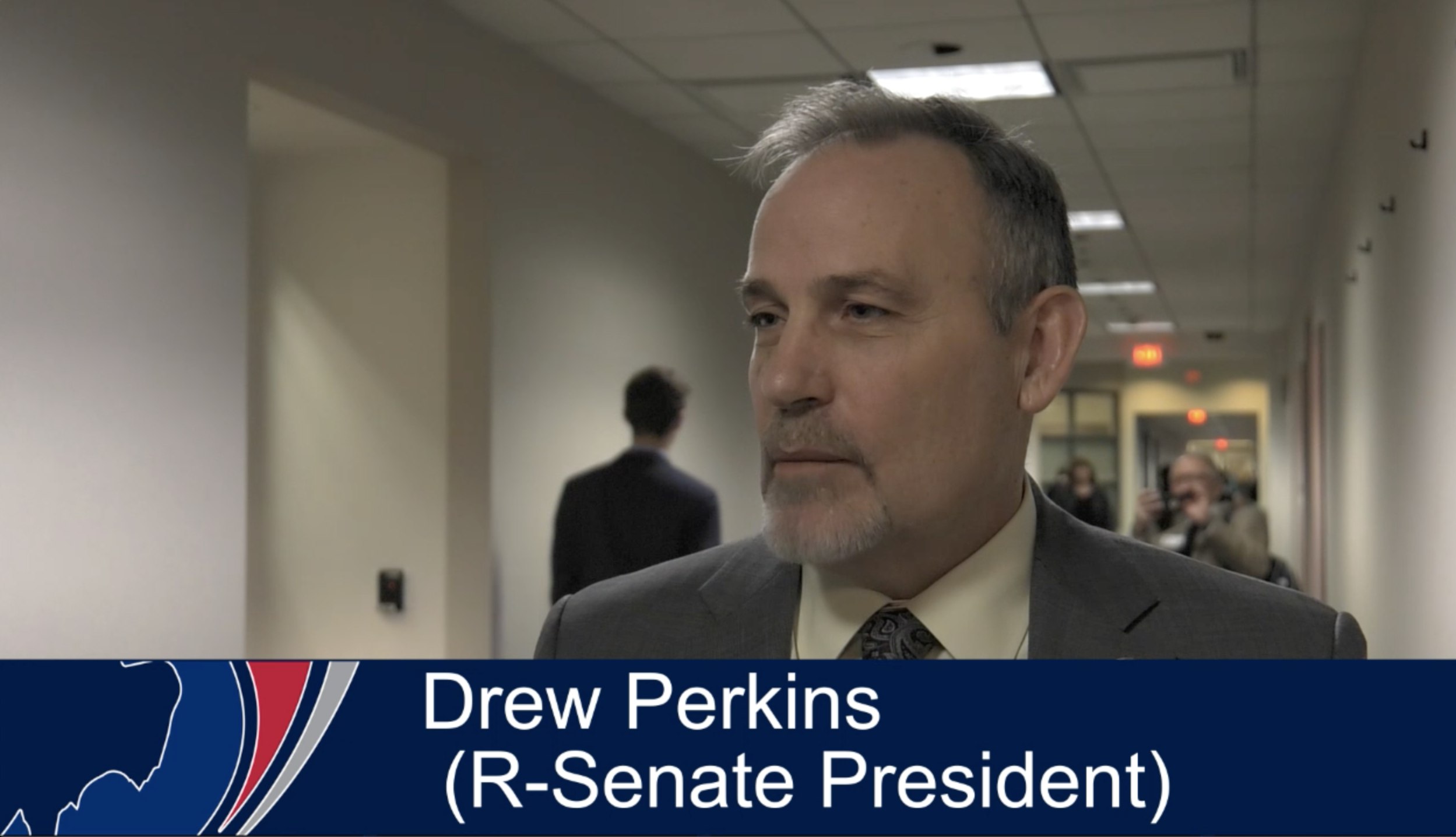Although Wyoming’s Senate is preparing for a worst-case scenario with the state’s supplemental budget, the leaders of both of the Legislature’s chambers are predicting their members will reach a compromise on the spending bill.
The Senate on Wednesday changed its rules to allow the late introduction of three bills proposing spending of about $45 million to support air transportation, education and the departments of Health and Family Services.
The appropriations are already contained in the supplemental budget bill making its way through both chambers, but Senate President Drew Perkins, R-Casper, said the Senate wanted to address the issues in separate bills should the supplemental budget die.
“If we can’t come to an agreement on the supplemental budget, we’ve got a backup,” he said. “There’s about four things that absolutely have to happen this session because they were uncompleted issues from the biennium budget last year.”
But House Speaker Rep. Steve Harshman, R-Casper, said he believes that a deal on the budget will be worked out and that the Senate’s backup plan is unnecessary.
“I told my secretary ‘Please don’t bring (the bills) into my office even if they do make it over because I’m not going to walk away from the process,’” he said. “It’s been here long before I was even born, it will be here a long time after I’m dead and gone and I’m not going to be part of trying to muck things up.”
The issue arose as the House and Senate looked at each other’s versions of the supplemental budget, which proposes spending needed between the even-numbered years when the Legislature sets a two-year budget.
As sent to both chambers by the Joint Appropriations Committee, the bill proposes spending of about $206 million, including $119 million from the state’s main bank account, called the “General Fund.”
By some counts, the House and Senate are $70 million apart in their versions, although both Perkins and Harshman set the difference at closer to $40 million.
The main differences between the House and Senate versions of the bill stem from beliefs in the Senate that the state should save its money, given uncertainties in the future of oil and gas prices, Perkins said, along with the idea the supplemental budget should only be used for emergency needs.
“The Senate views the supplemental budget as a supplemental budget, which by definition should be unanticipated needs or emergency needs,” he said. “A lot of those issues, we don’t believe, fall into those categories. The other side, too, is as we look at what we’re going to need next year, the Senate feels pretty strongly we ought to be saving money to cover what we’re going to see as a deficit in the school foundation program next year.”
That uncertainty prompted the Senate to kill a bill providing more than $50 million for various construction programs around the state, including repairs and upgrades at several community colleges and roof repairs for the State Penitentiary, Perkins said.
“We’re just trying to know where we can fill the gaps next year,” he said. “If I knew I was going to be short on my household income next year and I had some extra money this year, I’d set it aside because I’m thinking I’m going to need it next year — and that’s kind of where the Senate is.”
Harshman said many of the remaining disputes over the budget center on when spending might be necessary. He pointed as an example a proposed upgrade of the state Revenue Department’s excise tax computer system, which is based on an old computer language.
“It needs to be upgraded,” he said. “This was really a question of when. I think some senators thought maybe they don’t need this money for another 12 months and we can do it (in the biennium budget) net year. If that’s the case, fine.”
Both men said differences between the House and Senate on the budget are common and both predicted the supplemental budget bill would survive the session.
“We’ve still got plenty of time to resolve these things and get them moved forward and bring this in for a landing before the session’s over,” Perkins said.





